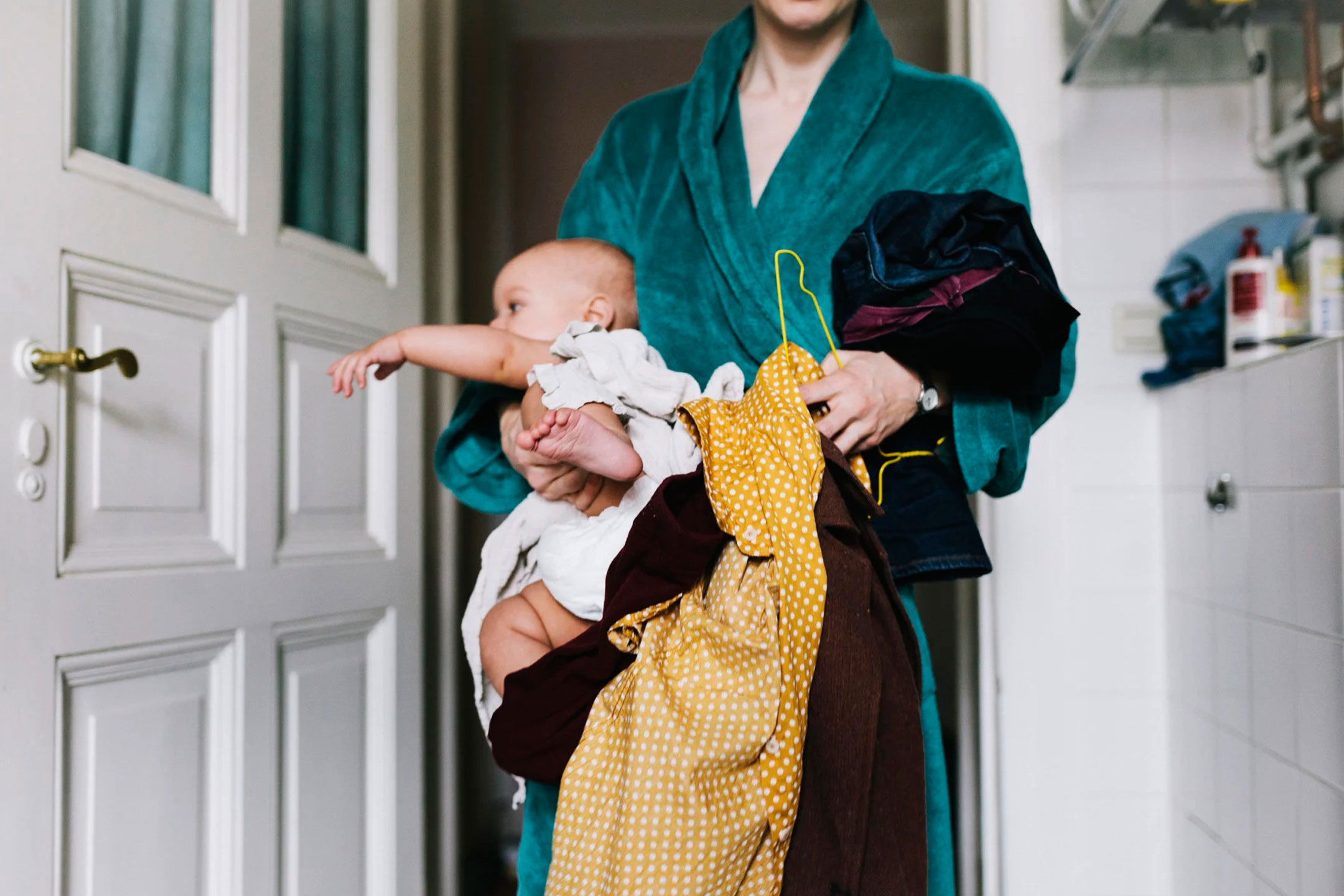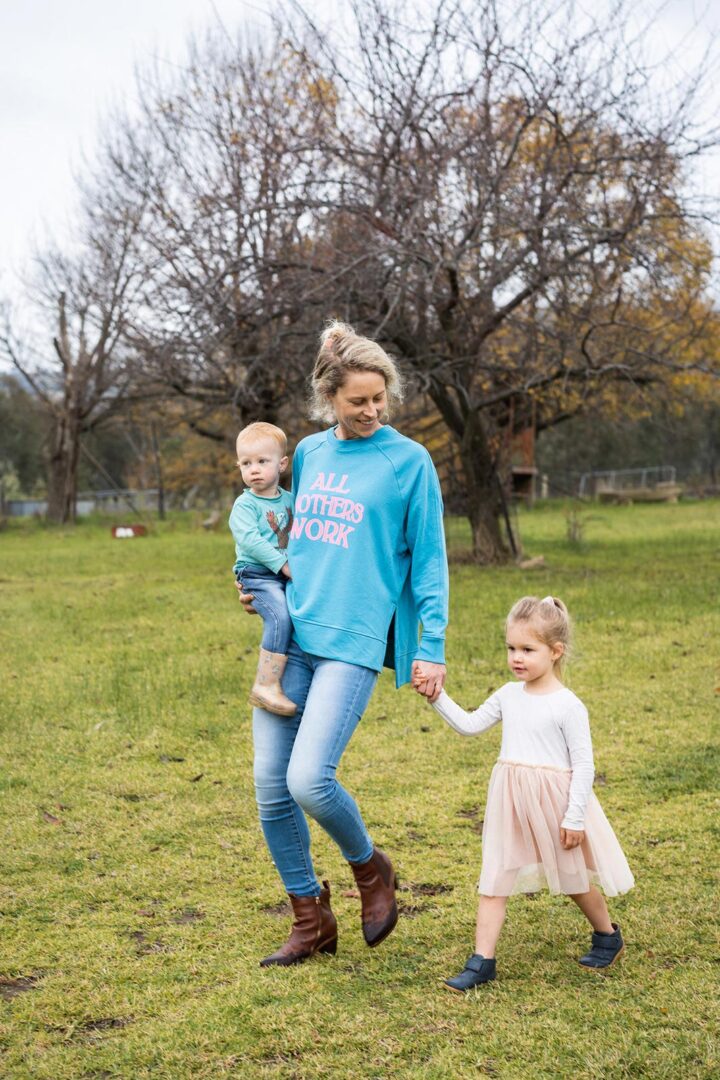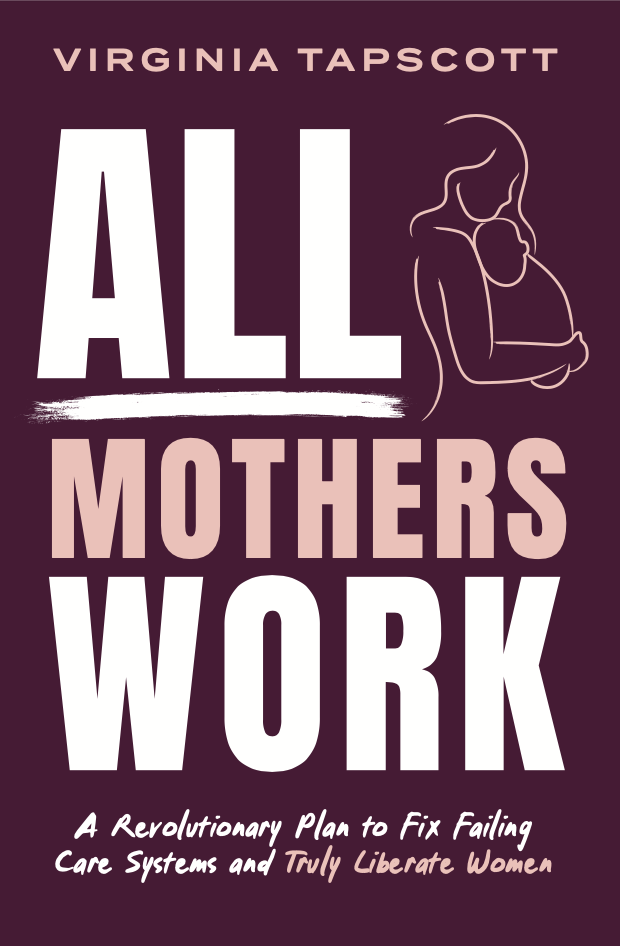
06 Nov All Mothers Work: Why It’s Time to Redefine What ‘Work’ Really Means
Author and journalist Virginia Tapscott, in her new book All Mothers Work, argues that to value care properly, we must start by changing the words we use.
We often talk about mothers “returning to work” as if the countless hours spent feeding, cleaning, teaching, and comforting their children don’t count. But language matters—and the way we speak about caregiving has quietly erased the real, vital labour mothers perform every day.
When Words Undermine Worth
The idea that caring for others isn’t real work has been one of the greatest challenges of motherhood for Tapscott. Each time she was asked when she would “go back to work” or heard discussions about women’s workforce participation, she felt her contribution shrinking in the eyes of society.
“When women entered paid work,” she explains, “it created an assumption that what they were doing before wasn’t work and wasn’t necessary.” This false divide between paid and unpaid labour stems from a deeply ingrained belief that if it’s not paid, it’s not valuable.
 The Hidden Power of Language
The Hidden Power of Language
Words such as “I’m just at home with the baby” or “I’m not working” don’t sound harmful, but they reinforce a damaging myth—that caregiving is a kind of leisure. In truth, raising children is relentless, life-altering work.
“When governments talk about ‘boosting women’s workforce participation,’ they imply that the hours women spend caring for children don’t count,” Tapscott writes. “When economists measure productivity only in terms of paid labour, they erase the enormous contribution of caregiving.”
This linguistic erasure, she says, isn’t just offensive—it’s harmful. It leaves mothers unsupported, isolated and exhausted, while shaping policies that undervalue unpaid care and push women prematurely back into paid employment.
Naming Care as Work
If we want to truly value care, we need language that reflects its reality. Tapscott proposes small but powerful shifts: replace “time off” with “care leave,” and speak of “moving between paid and unpaid work” rather than “returning to work.” Instead of calling parents “non-working,” we should call them what they are—full-time carers.
By naming care as work, Tapscott says, we begin to reshape the cultural script. We create systems that support mothers instead of erasing them. “The truth is simple,” she concludes. “All mothers work. Some of that work earns wages, some of it doesn’t. But every hour spent feeding, holding, teaching, cleaning, soothing and guiding our children is labour—labour that sustains families, communities and economies.”

Virginia Tapscott is a passionate advocate for maternal rights and the importance of reproductive and care labour in society. A journalist by trade, Virginia has written extensively about unpaid care work, motherhood, feminism and childcare, and has proposed innovative market mechanisms and government policies that can uplift mothers and families.
All Mothers Work, by Virginia Tapscott, is out now.




